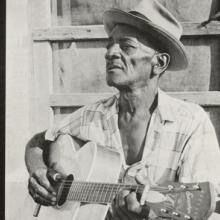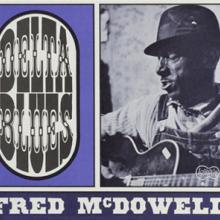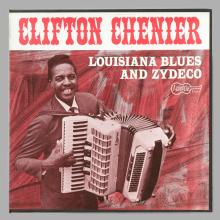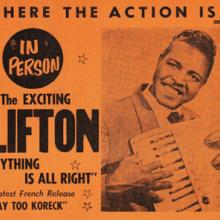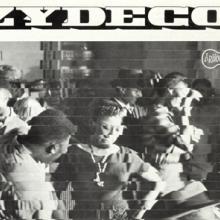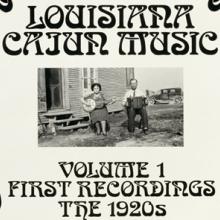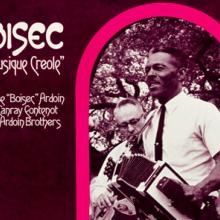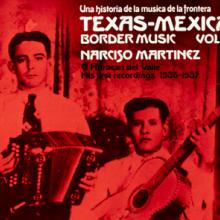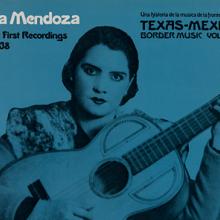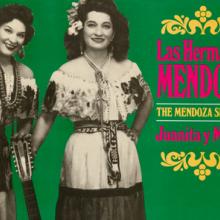Down-Home Music: The Story of Arhoolie Records
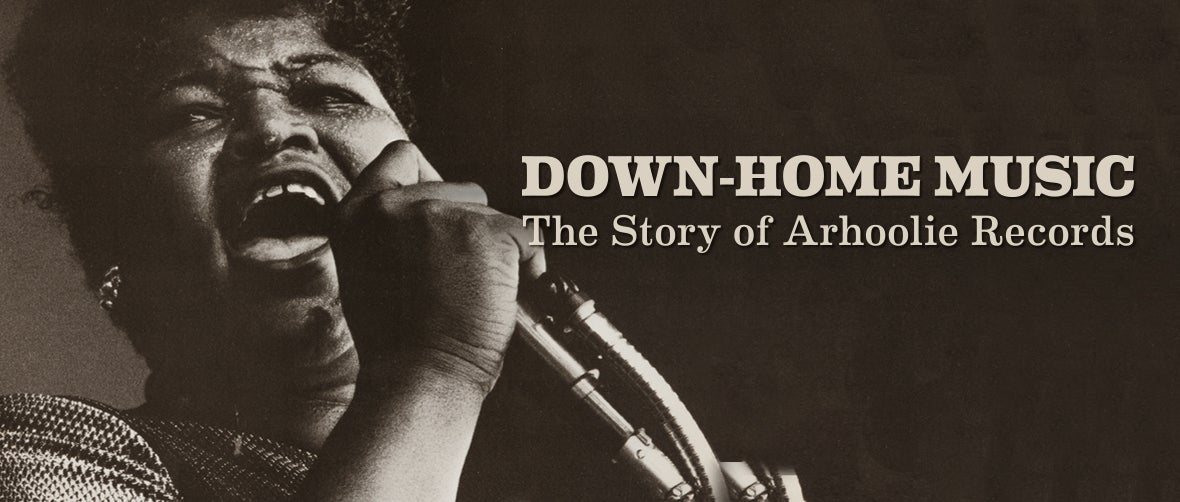
Terminal 2
Down-Home Music: The Story of Arhoolie Records
Chris Strachwitz (b. 1931) grew up in a prominent agricultural family in East Germany (which became part of Poland following World War II). Towards the end of the war, Strachwitz and his family fled the advancing Russian army and eventually settled in the United States in 1947. Strachwitz’s maternal grandmother was an American, and one of his great aunts who lived in Reno, Nevada, hosted the family for many years before they moved to Carmel, California. During this time, Strachwitz quickly developed a passion for American vernacular music. As a shy, lanky teenager in private school, he saw the movie “New Orleans,” which starred Louis Armstrong and he instantly fell in love with New Orleans jazz. Strachwitz started listening to radio broadcasts of hillbilly-country, rhythm-and-blues, gospel, and Mexican music and began fervently collecting 78-rpm records.
 After college and a two-year stint in the United States Army, Strachwitz worked as a German teacher at Los Gatos and Saratoga high schools in California. In the summer of 1959, he traveled by bus to Houston, Texas, where he met and saw blues legend Lightnin’ Hopkins perform in a small beer joint. Struck by his improvised lyrics and spontaneous exchange with the audience, he knew he wanted to record him in that setting. Strachwitz returned the following year hoping to capture Hopkins live—only to discover that the musician was on his way to California. Strachwitz’s friend and host Mack McCormick, an amateur folklorist, musicologist, and taxi driver, then took him north to the rural town of Navasota, where the pair met and recorded Mance Lipscomb, a Texas sharecropper skilled at performing a variety of folk songs, ballads, dance tunes, and blues.
After college and a two-year stint in the United States Army, Strachwitz worked as a German teacher at Los Gatos and Saratoga high schools in California. In the summer of 1959, he traveled by bus to Houston, Texas, where he met and saw blues legend Lightnin’ Hopkins perform in a small beer joint. Struck by his improvised lyrics and spontaneous exchange with the audience, he knew he wanted to record him in that setting. Strachwitz returned the following year hoping to capture Hopkins live—only to discover that the musician was on his way to California. Strachwitz’s friend and host Mack McCormick, an amateur folklorist, musicologist, and taxi driver, then took him north to the rural town of Navasota, where the pair met and recorded Mance Lipscomb, a Texas sharecropper skilled at performing a variety of folk songs, ballads, dance tunes, and blues.
In November of 1960, Strachwitz released the first LP on his Arhoolie label featuring Mance Lipscomb. McCormick suggested the name Arhoolie to Strachwitz, which allegedly meant “field holler;” though “hoolie” was likely the correct term. Strachwitz and his friend, graphic designer Wayne Pope, single-handedly pasted the front covers on two hundred and fifty black cardboard record jackets. Pope created the guitar-shaped logo, which appears on every Arhoolie recording. For over fifty years, Strachwitz introduced eager listeners to music that moved him. Boldly ignoring commercial trends, Strachwitz insisted, “I’ve never recorded things I didn’t like.”
 Strachwitz’s recordings continue to introduce generations of fans to a variety of vernacular musicians who might otherwise have remained unknown. He has recorded several important blues singers, and his Cajun, Creole, and zydeco releases—including the “King of Zydeco” Clifton Chenier— aided in popularizing these genres. Strachwitz’s numerous Mexican-American recordings include Flaco Jiménez and Lydia Mendoza. Strachwitz also traveled around the country recording a number of gospel steel guitarists in their homes and churches. Additionally, he made country and jazz recordings. Strachwitz also reissued older country, Cajun, and blues records on two additional labels—Old Timey Records and Blues Classics. Previously issued on 78-rpm discs, Strachwitz “rediscovered” early artists compiling their songs onto LPs—long playing 331/3-rpm vinyl records. He later purchased the Folk-Lyric label from Professor Harry Oster, on which he reissued historic Texas-Mexican border music and other types of older regional and ethnic music. Strachwitz also reissued Oster’s important field recordings on his Arhoolie label.
Strachwitz’s recordings continue to introduce generations of fans to a variety of vernacular musicians who might otherwise have remained unknown. He has recorded several important blues singers, and his Cajun, Creole, and zydeco releases—including the “King of Zydeco” Clifton Chenier— aided in popularizing these genres. Strachwitz’s numerous Mexican-American recordings include Flaco Jiménez and Lydia Mendoza. Strachwitz also traveled around the country recording a number of gospel steel guitarists in their homes and churches. Additionally, he made country and jazz recordings. Strachwitz also reissued older country, Cajun, and blues records on two additional labels—Old Timey Records and Blues Classics. Previously issued on 78-rpm discs, Strachwitz “rediscovered” early artists compiling their songs onto LPs—long playing 331/3-rpm vinyl records. He later purchased the Folk-Lyric label from Professor Harry Oster, on which he reissued historic Texas-Mexican border music and other types of older regional and ethnic music. Strachwitz also reissued Oster’s important field recordings on his Arhoolie label.
In 2016, Strachwitz won the Grammy’s Trustees Award, which parallels a Lifetime Achievement Award. The same year, Ed Littlefield’s Sage Foundation purchased the Arhoolie label and gifted it to Smithsonian Folkways Recordings in order to preserve Strachwitz’s important contributions to the history of American traditional music in perpetuity.
Special thank you to Chris Strachwitz and the Arhoolie Foundation for all of their assistance with the exhibition, to Smithsonian Folkways Recordings for preserving and disseminating Arhoolie Records in perpetuity, and to Maureen Gosling for supplying most of the film footage for the movie clips.
©2018 by the San Francisco Airport Commission. All rights reserved.
